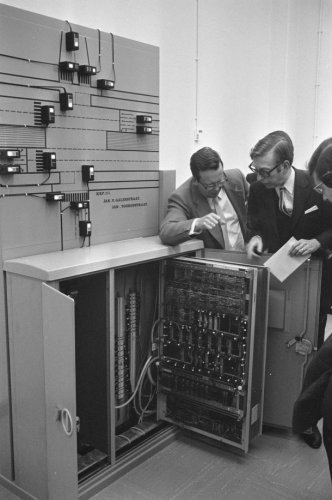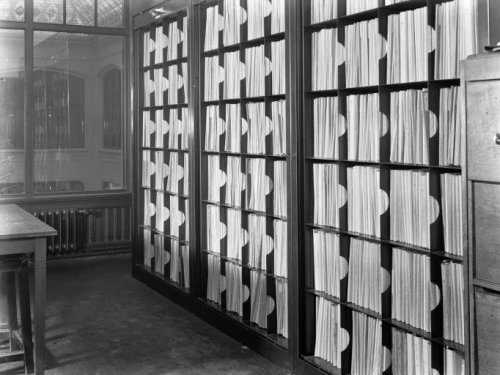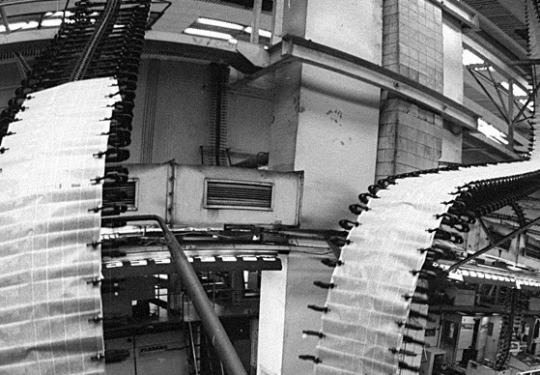In 2013 the European Union published Directive 2013/37/EU on the re-use of public sector information. In June 2015 this Directive was implemented as a Dutch law called the ‘Law for re-use of government information’.
Since the introduction of the bill seven months ago Dutch ministries have not made mandate decisions. Furthermore civil servants are not familiar with open standards, machine-readability and there is a lack of incentive to respond to re-use requests in a timily manner.
Citizens and organizations can, thanks to the new law, file a request for re-use of government data. Documents should, if available, be transferred in an open format.
Random sample test
 The Open State Foundation has submitted a number of re-use requests since October 2015 to ministries, municipalities and provinces. The re-use request law is also applicable to museums, libraries and archives. Open Archives has submitted requests to almost fifty archives and multiple municipalities.
The Open State Foundation has submitted a number of re-use requests since October 2015 to ministries, municipalities and provinces. The re-use request law is also applicable to museums, libraries and archives. Open Archives has submitted requests to almost fifty archives and multiple municipalities.
The results of the re-use requests are diverse. On average it takes governments and public institutions at least two months before they make a decide upon the request. Almost all governments and institutions that were asked for information used the option to adjourn. It took even longer to finally get access to the requested information in an open and machine-readable format. The bill dictates that the information should be send to the requestee as quickly as possible, no specific term is specified in the bill.
The bill has not been taking into practice
The Ministry of Economic Affairs has not yet made a mandate decision on the re-use request bill. That means that all affiliated government agencies cannot process re-use requests. In two cases we received confirmation that due to organizational reasons the procedure was not laid out. For that reason the Minister of Economic Affairs had to take the decision himself. As of now the re-use requests to these organizations are left unanswered for more then four months.
Request for re-use of public sector information with the ministries of Foreign Affairs and Security and Justice were answered within two months, and request with the Ministry of Social Affairs and Employment and the Ministry of Interior Affairs were answered within a week.
On a local and regional level the results were similar. Out of the twelve Dutch provinces, half of the provinces adjourned the request. On average it took provinces 44 workdays to finally submit the requested data. Four out of twelve provinces did not submit the requested information because the information was owned by a different public institution. None of the provinces forwarded the request to the owners, even though the bill dictates that the request should then be forwarded.
Re-use request with archives
 Re-use requests of Open Archives to archives gave the same result as the requests send to ministries and provinces. After two months only 13 percent of the notified institutions complied with the request. None of the notified organizations denied complying with the request, however they find it difficult to export the requested information from their systems.
Re-use requests of Open Archives to archives gave the same result as the requests send to ministries and provinces. After two months only 13 percent of the notified institutions complied with the request. None of the notified organizations denied complying with the request, however they find it difficult to export the requested information from their systems.
There is no mechanism within most governments that makes sure requested information is published at the national data portal. Registering this information at the data portal is not seen as a priority by some of the ministries. More than once ministries said that information was available online, even though in most cases this information was not machine-readable or available in an open format with requested metadata.
Public information and open formats
There is still a lot of unfamiliarity when it comes to machine-readability and open standards. The goal of the re-use request bill is to get public sector information available so it can be re-used by third parties for a broad variety of purposes. According to the bill a public institution that receives a re-use request has the obligation to make an effort to find and submit the information in a raw and re-usable format.
The bill already seems to work with governments that refused to hand over information in an open format. Twenty municipalities, that have Pdf-documents on their websites, decided to submit this information in an open CSV-file format after a re-use request was send. Before the implementation of the re-use bill these municipalities refused to send the information in an open format. Making telephone calls was also an effective way to speed up the process of getting information.
The first random sample test shows that public sector institutions are still very unfamiliar with the re-use request bill and do not yet know how to implement it. A lot of internal processes were not optimized that could help with handling re-use requests. The implementation of the re-use of information bill is an important step, but real change can only be expected with new and modern legislation on active government transparency.
